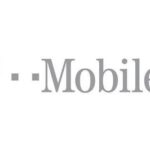Considering a switch in your mobile carrier or simply exploring your options? Making the right choice between Verizon and T-Mobile is crucial for optimal connectivity and value. Both T-Mobile and Verizon stand out as leading network providers, each offering a variety of unlimited plans designed to cater to different user needs. This comprehensive comparison dives deep into Verizon and T-Mobile unlimited plans, analyzing coverage, pricing, perks, and more to help you determine which carrier best fits your lifestyle and requirements.
T-Mobile vs Verizon: Points of Agreement
Both Verizon and T-Mobile share several key features that place them at the forefront of the mobile industry:
- Extensive 4G LTE and Growing 5G Coverage: Both carriers provide robust 4G LTE networks nationwide and are aggressively expanding their 5G footprints, ensuring users in more locations can experience faster speeds.
- Independent Network Infrastructure: Unlike some smaller providers that lease network access, Verizon and T-Mobile own and operate their networks. This is significant because it means their customers typically receive prioritized data, leading to more consistent speeds, especially during peak usage times.
- Attractive Multi-Line Discounts: To make family plans and group accounts more affordable, both Verizon and T-Mobile offer reduced per-line costs as you add more lines to your account.
- Valuable Plan Perks and Bundles: Both carriers enhance their plans with enticing perks, often including subscriptions to popular streaming services and other benefits that add extra value.
- Superior International Roaming Options: For those who travel internationally, both T-Mobile and Verizon offer excellent international capabilities, making it easy to stay connected while abroad.
T-Mobile vs Verizon: Key Differences
While they share similarities, important distinctions exist between T-Mobile and Verizon that can sway your decision:
- Taxes and Fees Transparency: T-Mobile distinguishes itself by including taxes and fees in the advertised price of its mid-range and premium plans. This upfront pricing transparency makes budgeting easier, whereas Verizon adds taxes and fees on top of their listed plan prices for all tiers.
- Hotspot Data Inclusion: T-Mobile is more generous with hotspot data, incorporating it into all of its unlimited plans. Verizon, however, only includes hotspot data in its mid-level and premium unlimited plans. While Verizon allows you to add a substantial 100GB of hotspot data to any plan, it comes at an additional cost.
Coverage Comparison: Verizon vs T-Mobile
Network coverage is paramount when choosing a cell phone plan. The best way to evaluate coverage is to test both services in your frequently visited locations. If direct testing isn’t feasible, coverage maps provide a valuable resource.
Consulting T-Mobile’s and Verizon’s coverage maps for your home, workplace, and other significant areas is crucial. These maps offer insights into the signal strength you can expect from each carrier in specific locations.
T-Mobile Coverage Map
Alt Text: T-Mobile nationwide coverage map displaying 5G and 4G LTE network availability across the United States.
Verizon Coverage Map
Alt Text: Verizon nationwide coverage map illustrating strong 4G LTE and 5G network presence throughout the United States.
Understanding Unlimited Data Plans: An unlimited data plan promises endless data access, but the specifics can vary significantly. Entry-level unlimited plans often provide unlimited data that may be temporarily slowed down (deprioritized) during network congestion. Some may include a limited amount of high-speed “premium” data, while others don’t. Mid-tier plans usually blend a set amount of high-speed data with unlimited standard data. Truly unlimited premium data, which isn’t subject to slowdowns, is typically reserved for the most expensive, top-tier plans.
Entry-Level Unlimited Plans: T-Mobile vs Verizon
For users with basic data needs, entry-level unlimited plans from T-Mobile and Verizon offer cost-effective solutions. These plans are ideal for individuals who primarily use their smartphones for light browsing, email checks, and occasional video streaming, with minimal mobile hotspot usage.
{{cards-1}}
Mid-Range Unlimited Plans: T-Mobile vs Verizon
If you require a balance of price and performance, mid-level unlimited plans from T-Mobile and Verizon are worth considering. These plans cater to average data users who might use mobile hotspots a few times a week, enjoy mobile gaming, stream videos moderately, and engage in social media daily.
{{cards-2}}
Premium Unlimited Plans: T-Mobile vs Verizon
For heavy data users who demand uncompromised speed and capacity, premium unlimited plans are the optimal choice. If you frequently use your phone as a mobile hotspot, heavily engage in video uploading and streaming, play data-intensive games, and rely on constant connectivity, a premium plan ensures your data needs are met without restriction. Both T-Mobile and Verizon offer premium unlimited plans designed for the most demanding users.
{{cards-3}}
Final Verdict: T-Mobile or Verizon?
Choosing between T-Mobile and Verizon depends on your specific needs and priorities. To simplify your decision-making process, utilize our free and unbiased Plan Finder. This tool rapidly compares thousands of plans to pinpoint the best options tailored to your requirements. You can also explore plans from other carriers to ensure you’re making the most informed choice. Specify the number of lines you need, desired hotspot data, and preferred streaming perks to accurately assess the total cost before committing to a carrier. For further guidance, consult our article on what to look for in a wireless plan.
Frequently Asked Questions
T-Mobile or Verizon: Which is the Superior Carrier?
Both T-Mobile and Verizon are strong contenders, offering extensive 4G and 5G coverage, reliable network ownership, and valuable add-ons like streaming perks and international roaming. T-Mobile stands out with hotspot data inclusion across all unlimited plans, while Verizon reserves this for higher-tier plans. The “better” carrier is subjective and largely depends on location-specific coverage and individual needs.
Which Provider Offers Better Coverage: T-Mobile or Verizon?
T-Mobile boasts the leading 5G network in the nation, while Verizon is recognized for its robust nationwide 4G coverage.
Does T-Mobile Utilize Verizon Towers?
No, T-Mobile operates independently and does not rely on Verizon’s network infrastructure. T-Mobile maintains its own comprehensive nationwide network.
